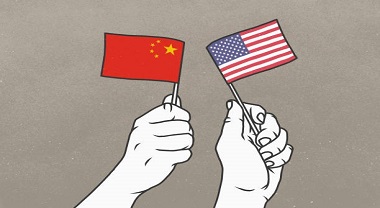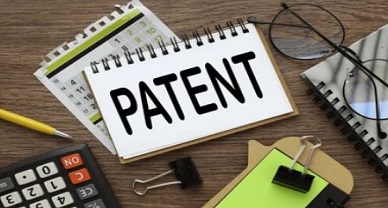US Innovation and Competition Act 2021 approves by US Senate, Competing China’s Tech Rise
With China emerging as a global tech giant in the world, it has become a favorite destination for the inventor to seek protection for their invention. At the latest EPO Index 2020, all countries show a small dip in the patent filing activity, China taking up the 4th spot has shown an increase in the filing for the said year in 2020 amid pandemic. The patent does protect the inventor to garner more protection and take up more commercial benefits out of the same. It also protects the inventor from any such infringement stating the effective claims over which it can have infringement.
[Img Source: gettyimages]
China’s Threat
In view of competing with Chinese technology, the United States advanced a package of legislation for boosting the technological competency given greater global resilience, especially with China. The vote entered by Senators was 68-30. With this, it ends the $250 billion U.S. Innovation and Competition Act of 2021, or USICA, and moves nearer to a final vote on the legislation. Passing the Senate, the bill needs to be passed in the House of Representatives before finally sending it to the White House for Biden to sign into law.
There have been bipartisan sentiments in the U.S. Congress, having the desire for a hard feeling in dealing with China. Senate Democratic Majority Leader Chuck Schumer, who co-wrote the USICA legislation, said the United States spends less than 1% of the gross domestic product on basic scientific research, less than half of what China does. He said, “We have put ourselves in a very precarious position of potentially falling behind the rest of the world in the technologies and industries that will define the next century,”
No comment was being made by the Chinese embassy in Washington on the legislation. For strengthening the US technology in general, it authorized $190 billion for various provisions moreover; it authorized $54 billion for specifically increasing the production of semiconductors, microchips, and telecommunication equipment.
Admitting China’s growth in the global market and influence through diplomacy, the legislation addresses this as well. It seeks to work more with allies which will increase the involvement of the US in multiple international organizations, which were pulled out by former President Donald Trump as his “America First” agenda.
Senate even approved an amendment by 91-4 backed by Republican Senator Mike Crapo and Democratic Senator Ron Wyden. This amendment retaliates against China’s anti-competitive trade, barring products produced using forced labor.
What does it mean for the US?
The Centre of Strategies and International Studies gave exemplary remarks on the Act. The Senate’s recent adoption of the U.S. Innovation and Competition Act sent an important message that, even in a deeply divided Washington, challenging China’s efforts to displace the United States as the world’s technology superpower is an increasingly bipartisan issue. Although the bill—if passed by the House—would authorize a welcome boost of $250 billion of investment in a range of emerging technologies, this figure represents a mere drop in the bucket compared to the trillions that Beijing continues to pour into its technology development. Simply put, the United States cannot and should not attempt to compete with China in a race of state-backed investments. Indeed, what could prove more valuable than the price tag of the Innovation and Competition Act is a series of counterintelligence and security enhancements intended to protect U.S. innovation and strengthen national competitiveness. And while the emphasis that Congress has put on improving research security and integrity in the bill is long overdue, the Innovation and Competition Act in many ways does not go far enough toward ensuring these efforts are thoughtfully implemented and properly resourced. (https://www.csis.org/analysis/what-us-innovation-and-competition-act-gets-right-and-what-it-gets-wrong)
Author: Saransh Chaturvedi an associate at IP & Legal Filings, in case of any queries please contact/write back to us at support@ipandlegalfilings.com.



